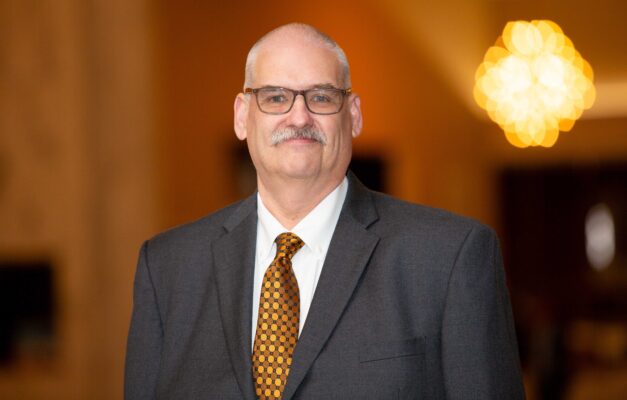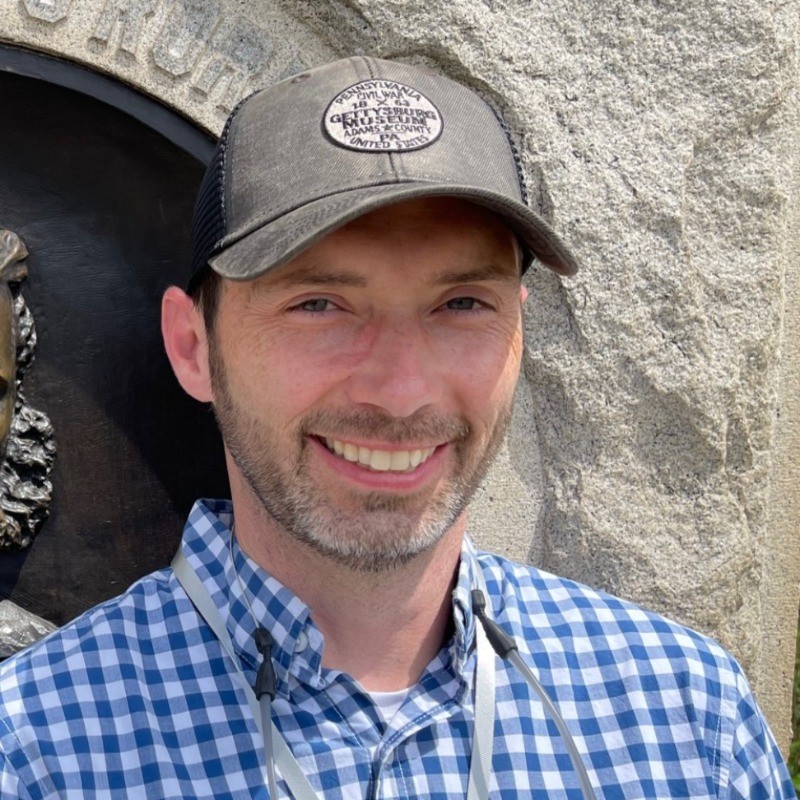When Todd Leiss enrolled in the Operations Academy (OA) Senior Management Program at the University of Maryland back in 2018, he had very little knowledge about transportation systems management and operations (TSMO). At the time, he was Traffic Incident and Emergency Management Supervisor for the Pennsylvania Turnpike, and his primary role was to be a responder. But during his two weeks in the Operations Academy, he quickly learned how much more there was to understand about how TSMO could be better implemented with other responders like himself, as well as with others in areas like planning and engineering.
Among his standout experiences in the Operations Academy was riding out in trucks with safety service patrols and seeing their challenges firsthand. He was also able to share his own experiences from hands-on operations during incident responses from the traffic management side, while also hearing insights from planners and engineers. Unfortunately, he had seen far too much devastation and fatalities on the road and was able to discuss how they had cleaned up an incident in an efficient manner and restored normal traffic flow.
“I had some of that in my role with the Turnpike, but talking with them helped me understand more about data analytics and how that is important, and that when you clear a road faster, it saves people time and a lot of money,” he said. “That’s something I brought back to the Turnpike after the Operations Academy. Using new methods to clear roadways, we went from needing 48 minutes to 40 minutes to clear an incident, and that resulted in a $15 million savings over a year.”
It’s hard to imagine that shaving eight minutes off the time it takes to clear off a road incident could save that much money. When that happens, motorists must detour, sit in traffic, and all that is a waste of gas. When all those factors are added in to how much it costs for maintenance crews to clear incidents up, it’s a stunning amount of money.
When Todd shared this information and the other insights he acquired at the Operations Academy, he was able to get their buy-in to support his initiatives.
“They were able to receive what I was telling them, because I had been to the Operations Academy and my bosses at the time had also completed it, so that was very significant and helped us all relate better,” he said. “Everything about the program helped us. It’s not possible to find this level of training elsewhere. We all learned so much from the speakers, the field trips, and from how it was moderated. Everything we were taught made us better professionals after we returned to our jobs.”
It was not an easy two weeks, with a lot of homework to complete even before it started. But it was completely worth all the time and effort, because Todd and his cohort still keep in touch. Even today, in his role as Traffic Incident Specialist at Jacobs Engineering, he frequently gets on the ListServe, asks questions and receives guidance to help him resolve his problems.
“If anyone is indecisive about doing the Operations Academy, it’s a commitment you need to make, for yourself and for others,” he said. “It will benefit you in the long run, increase your knowledge, and expand your network.”






